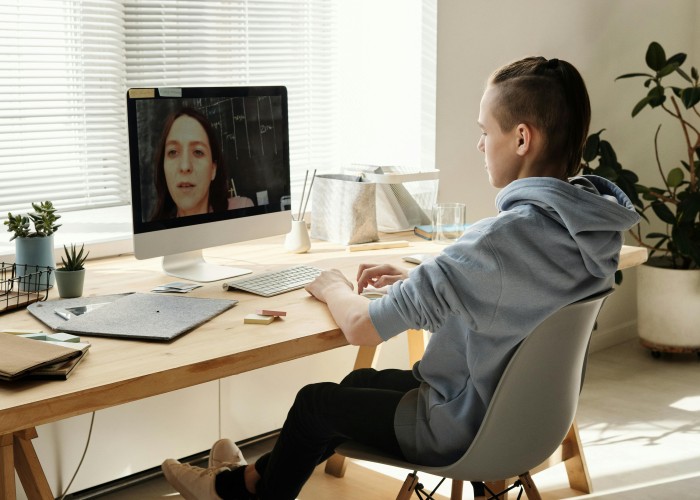Visit Our In-Demand General Blog
Visit Our In-Demand Tour & Travel Blog
Let’s continue to the blog..
Social media has become an integral part of daily life for millions of people worldwide. From connecting with friends and family to staying updated on news and trends, platforms like Facebook, Instagram, Twitter, and TikTok are central to modern communication. While social media offers many benefits, research has increasingly shown that excessive or unhealthy use can have significant effects on mental health. How Social Media Affects Your Mental Health.
Understanding how social media impacts emotional well-being can help individuals establish healthier habits, reduce stress, and maintain a balanced lifestyle.
The Positive Side of Social Media
Before examining the negative effects, it is important to acknowledge the benefits social media can provide:
- Connection and Support: Platforms allow people to maintain relationships, even across long distances, which can reduce feelings of isolation.
- Access to Information: Users can stay informed about current events, mental health resources, and educational content.
- Community Engagement: Social media enables participation in groups and communities that provide support for shared interests or challenges.
- Creative Expression: Sharing ideas, art, or experiences can boost self-esteem and encourage personal growth.
Even with these advantages, the way social media is used can dramatically affect mental health outcomes.
How Social Media Negatively Impacts Mental Health
1. Increased Anxiety and Stress
Scrolling through endless posts can create a constant sense of urgency or pressure. Comparing yourself to others’ curated content can lead to feelings of inadequacy, stress, and anxiety. Constant notifications and alerts can also keep the brain in a heightened state of alertness, reducing the ability to relax.
2. Depression and Low Self-Esteem
Exposure to idealized images, lifestyles, and achievements can trigger negative self-perception. People often compare themselves to others without recognizing the selective nature of shared content. Over time, this comparison can lead to low self-esteem, sadness, or depressive feelings.
3. Fear of Missing Out (FOMO)
Social media can intensify FOMO, where users feel they are missing experiences that others are enjoying. This perception can create anxiety, dissatisfaction, and a compulsive need to stay online to avoid missing updates. How Social Media Affects Your Mental Health.
4. Sleep Disruption
Using social media before bedtime can interfere with sleep quality. The blue light from screens can disrupt the production of melatonin, the hormone that regulates sleep. Late-night scrolling can also create mental stimulation that makes it difficult to fall asleep, leading to fatigue and mood disturbances.
5. Cyberbullying and Online Harassment
Social media exposes individuals to negative interactions, including cyberbullying, harassment, or hateful comments. These experiences can increase stress, depression, and social withdrawal, particularly among teens and young adults.
6. Addiction and Compulsive Behavior
Some users develop a dependency on social media, characterized by compulsive checking, excessive scrolling, and difficulty disconnecting. This behavior can interfere with work, relationships, and self-care routines, contributing to anxiety and mental fatigue.
The Role of Social Comparison
Social comparison is a major factor in social media’s impact on mental health. Users often evaluate themselves against others’ curated posts, which typically highlight positive achievements or idealized lifestyles.
Key issues include:
- Upward Comparison: Feeling inferior when comparing yourself to others who appear more successful, attractive, or happy.
- Downward Comparison: Feeling temporary satisfaction by comparing yourself to others perceived as less fortunate, which can reinforce judgmental thinking.
- Perceived Social Pressure: The need to appear successful or popular can increase stress and reduce authenticity.
Tips to Maintain a Healthy Relationship with Social Media
1. Set Time Limits
Limit daily social media use to avoid excessive exposure. Many apps provide built-in tools to track and manage screen time. Setting boundaries can reduce anxiety, improve sleep, and create time for offline activities.
2. Curate Your Feed
Follow accounts that provide positive, educational, or inspiring content. Unfollow or mute accounts that trigger stress, comparison, or negative emotions.
3. Prioritize Real-Life Connections
Balance online interaction with in-person connections. Face-to-face communication fosters stronger relationships and emotional well-being compared to virtual interactions. How Social Media Affects Your Mental Health.
4. Practice Mindful Usage
Be aware of how social media makes you feel. Pause before scrolling and notice emotional reactions. Avoid passive scrolling that leads to comparison and negative self-talk.
5. Take Regular Digital Breaks
Schedule periods without social media, such as during meals, before bedtime, or on weekends. A digital detox can reduce stress and improve focus.
6. Engage in Offline Activities
Exercise, hobbies, nature walks, journaling, or creative pursuits can provide fulfillment and reduce dependence on social media for validation or entertainment.
Benefits of Conscious Social Media Use
When used mindfully, social media can positively contribute to mental health:
- Education and Awareness: Mental health resources, support communities, and educational content are readily accessible.
- Support Networks: Online communities for mental health or personal growth can reduce isolation.
- Motivation and Inspiration: Following positive role models and content can encourage healthy habits, creativity, and personal development.
FAQs About Social Media and Mental Health
1. Can social media cause depression?
Excessive use, negative comparison, and exposure to cyberbullying can contribute to depressive symptoms, particularly in vulnerable individuals.
2. How much social media is safe per day?
While it varies by individual, limiting use to 30–60 minutes of mindful engagement daily can reduce negative effects.
3. How can I reduce anxiety from social media?
Curate your feed, mute stress-inducing accounts, set screen time limits, and practice offline activities.
4. Does social media affect sleep?
Yes, screen time before bed can disrupt sleep quality due to blue light and mental stimulation. Limiting usage at night can help.
5. Can social media be used positively for mental health?
Absolutely. Following mental health pages, online support groups, and motivational content can enhance well-being.
6. What is FOMO, and how does social media contribute?
FOMO, or Fear of Missing Out, is anxiety about missing experiences others are enjoying. Constant exposure to posts can intensify FOMO.
7. Are teens more vulnerable to negative social media effects?
Yes, adolescents are more sensitive to peer comparison, social validation, and cyberbullying, making them more vulnerable to anxiety and depression.
8. Can social media addiction be treated?
Yes, establishing boundaries, using digital wellness tools, and seeking professional guidance when necessary can help manage compulsive use.
Conclusion
Social media is a double-edged sword. It provides connectivity, information, and inspiration but can also negatively impact mental health when used excessively or mindlessly. Recognizing the potential risks, setting boundaries, and using platforms consciously can help preserve emotional well-being.






Leave a Reply